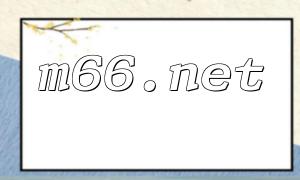Introduction:
With the rapid development of the internet, real-time chat systems have become an essential part of modern communication. However, the increasing security risks of data transmission and network attacks make protecting user privacy and data security more important than ever. This article discusses how to implement data transmission encryption and effective defense strategies in PHP-based real-time chat systems to ensure their security.
Data encryption is a crucial method for ensuring information security. In a PHP real-time chat system, data transmission encryption includes both the communication encryption between the client and server and the encryption of data stored in the database.
Code example:
<?php
// Enable SSL/TLS encryption
stream_context_set_default(
array(
'ssl' => array(
'verify_peer' => false, // Disable verification of the server's SSL certificate
'allow_self_signed' => true // Allow the use of self-signed certificates
)
)
);
?>
Code example:
<?php
// Data encryption
function encryptData($data, $key) {
$ivSize = openssl_cipher_iv_length('AES-256-CBC');
$iv = openssl_random_pseudo_bytes($ivSize);
$encrypted = openssl_encrypt($data, 'AES-256-CBC', $key, OPENSSL_RAW_DATA, $iv);
return $iv . $encrypted;
}
// Data decryption
function decryptData($data, $key) {
$ivSize = openssl_cipher_iv_length('AES-256-CBC');
$iv = substr($data, 0, $ivSize);
$encryptedData = substr($data, $ivSize);
return openssl_decrypt($encryptedData, 'AES-256-CBC', $key, OPENSSL_RAW_DATA, $iv);
}
?>
In addition to data encryption, defending against various network attacks is also a critical aspect of system security. Below are some common anti-attack strategies:
Code example:
<?php
// Prepared statement and parameterized query
function saveChatMessage($sender, $recipient, $message) {
$stmt = $pdo->prepare("INSERT INTO chat_messages (sender, recipient, message) VALUES (:sender, :recipient, :message)");
$stmt->bindParam(':sender', $sender);
$stmt->bindParam(':recipient', $recipient);
$stmt->bindParam(':message', $message);
$stmt->execute();
}
?>
Code example:
<?php
// Filter and escape user input
function filterAndEscape($input) {
return htmlspecialchars(strip_tags($input), ENT_QUOTES, 'UTF-8');
}
?>
Code example:
<?php
// Generate token
function generateToken() {
return bin2hex(random_bytes(16));
}
// Validate token
function validateToken($token) {
// Validate rules such as expiration date
return true;
}
// Check user permissions
function checkPermissions($user, $resource) {
// Check if the user has access to the resource
return true;
}
// Example usage
$token = generateToken();
if (validateToken($token) && checkPermissions($user, $resource)) {
// Perform related operations
}
?>
In a PHP-based real-time chat system, data transmission encryption and anti-attack strategies are essential for ensuring security. By using SSL/TLS for secure communication, AES for encrypting sensitive data, prepared statements to prevent SQL injection, filtering input data to guard against XSS, and token authentication with ACLs to prevent request and identity spoofing, we can significantly enhance the system's security and protect user privacy and data.









